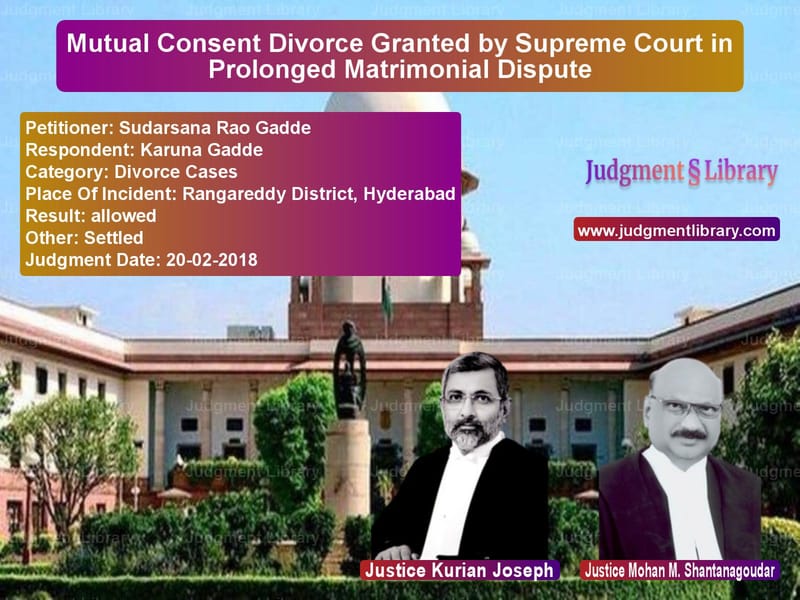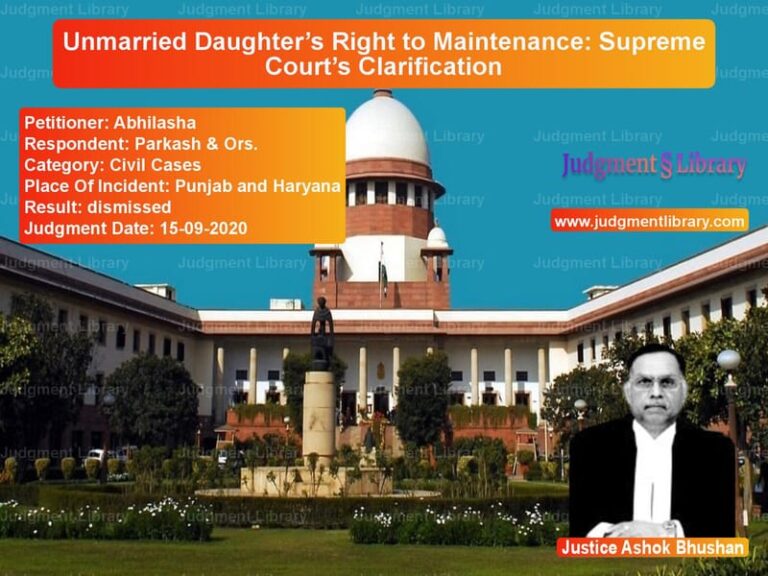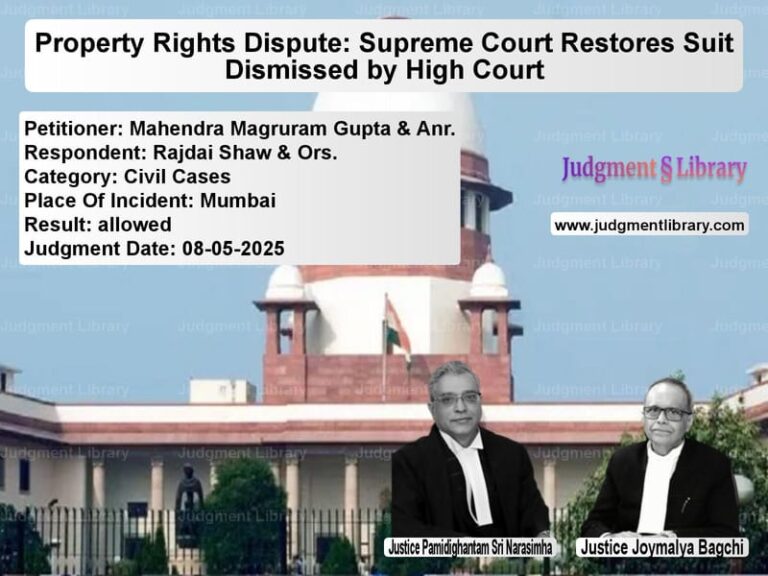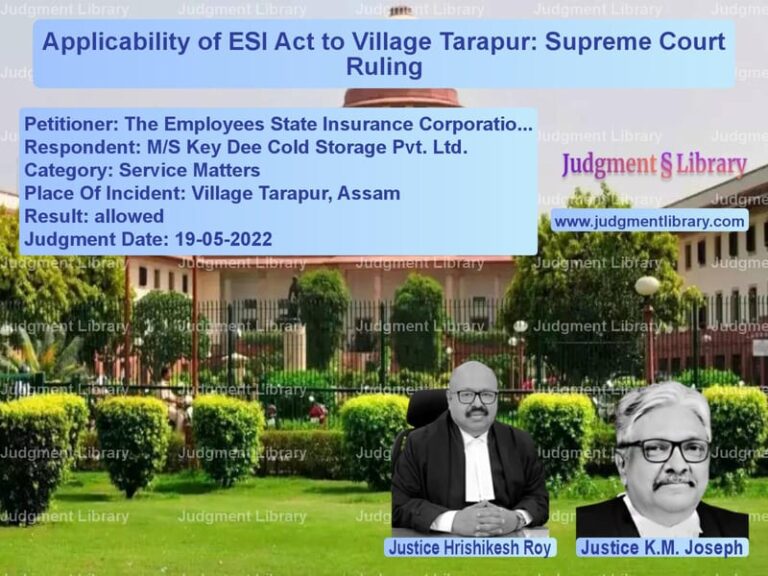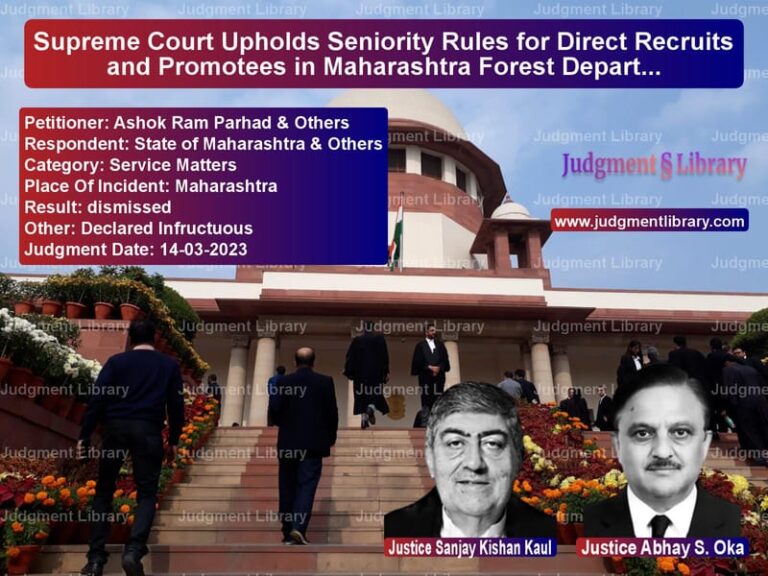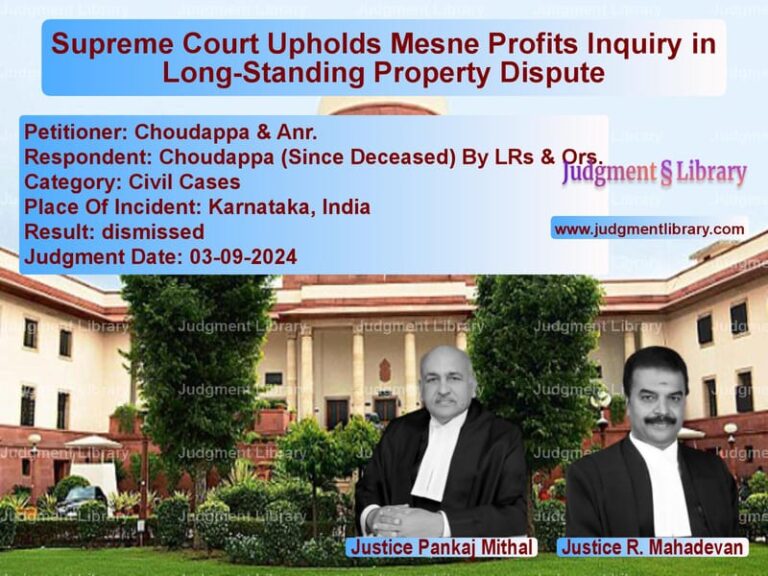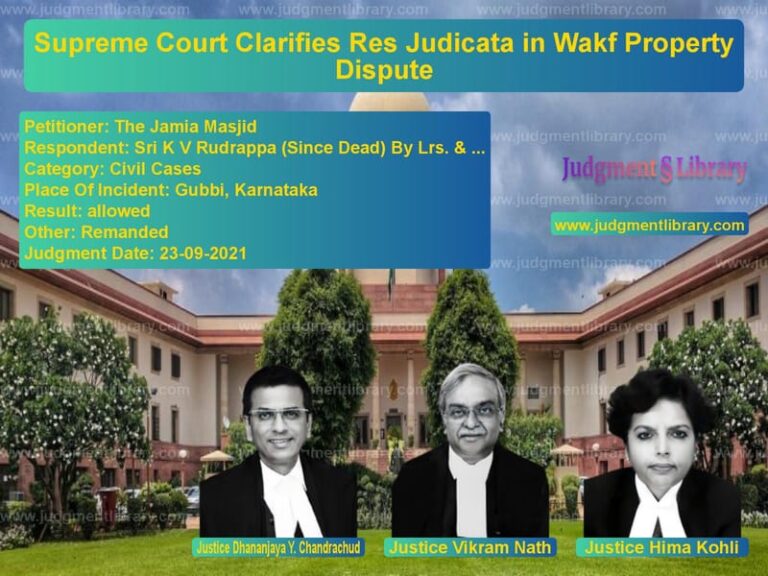Mutual Consent Divorce Granted by Supreme Court in Prolonged Matrimonial Dispute
The Supreme Court of India recently delivered a judgment in Sudarsana Rao Gadde v. Karuna Gadde, resolving a prolonged matrimonial dispute involving child custody and divorce proceedings. The case highlights the importance of mediation in family disputes and sets a precedent for resolving custody and divorce cases amicably.
Background of the Case
The appellant, Sudarsana Rao Gadde, filed an appeal before the Supreme Court against an order dated June 16, 2017, in Civil Revision No.1804/2017. The dispute centered around the custody of the minor child, Aayush, and the strained relationship between the appellant and respondent, Karuna Gadde. The case had been pending for years, with multiple litigations between the parties.
The Supreme Court, recognizing the emotional and psychological impact of the ongoing dispute, made several attempts to facilitate an amicable settlement through mediation and discussions. Senior counsels from both sides, along with Additional Solicitor General P.S. Narasimha, played an instrumental role in brokering a resolution.
Efforts for Settlement
On August 1, 2017, the Supreme Court recorded a significant development. The parties, after prolonged discussions, arrived at a mutually agreed settlement regarding custody and visitation rights for their child. The Court’s order on this date stated:
“The parties are before us on account of prolonged litigation for the custody of their minor child, Aayush. The child has not been attending school for the last one month. Thanks to the intervention of Mr. P.S. Narasimha, learned Additional Solicitor General, and strenuous efforts by learned senior counsel on both sides, the parties have now arrived at a settlement.”
The agreement was signed by both parties and their respective legal representatives, ensuring that all pending disputes would be resolved amicably. The Court directed both parties to adhere strictly to the terms of the settlement and imposed a condition that neither party should initiate new legal proceedings against the other without prior permission from the Supreme Court.
Final Judgment and Divorce by Mutual Consent
On February 20, 2018, both parties appeared before the Supreme Court along with their child. The Court found that they had reached a well-considered decision to end their marriage without any coercion or external pressure. A decree of divorce by mutual consent was granted under Section 10A of the Indian Divorce Act, 1869.
The Court’s ruling emphasized:
- The mutual agreement on visitation and custody rights, which was to be strictly followed by both parties.
- The dissolution of marriage with immediate effect under Section 10A of the Indian Divorce Act, 1869.
- The disposal of all pending litigations between the parties, including G.W.O.P. No. 2222/2016 and O.P. No. 2223/2016, before the Family Court at Rangareddy District, Hyderabad.
- Restraining both parties from instituting fresh legal proceedings against each other without prior permission from the Supreme Court.
Key Observations by the Supreme Court
Justice Kurian Joseph, delivering the judgment, made the following significant observations:
“In view of the long litigations between the parties, they have prayed for a decree of divorce by mutual consent. Having interacted with the parties, we find that they have taken a conscious decision without being influenced by any extraneous factors.”
The Court further emphasized the importance of mediation in matrimonial disputes, stating that courts must encourage alternative dispute resolution mechanisms, especially in cases involving child custody.
Implications of the Judgment
This ruling has far-reaching implications for matrimonial cases in India:
- Encouragement of Mediation: The judgment underscores the need for mediation and settlement in prolonged matrimonial disputes to avoid emotional distress for children and families.
- Binding Effect of Settlement Agreements: Courts will now be more inclined to enforce settlement agreements signed by both parties.
- Legal Protection Against Further Litigation: By restricting the parties from initiating fresh litigation, the Court ensures finality in matrimonial disputes.
- Precedent for Divorce by Mutual Consent: The ruling sets a precedent for granting divorce under Section 10A of the Indian Divorce Act, 1869, based on mutually agreed terms.
Conclusion
The Supreme Court’s decision in Sudarsana Rao Gadde v. Karuna Gadde is a landmark ruling that emphasizes the importance of mediation in family disputes. By facilitating an amicable resolution, the Court not only upheld the best interests of the child but also provided a dignified closure to the parties involved. The judgment serves as a guiding principle for courts in dealing with complex matrimonial disputes in the future.
Petitioner Name: Sudarsana Rao GaddeRespondent Name: Karuna GaddeJudgment By: Justice Kurian Joseph, Justice Mohan M. ShantanagoudarJudgment Date: 20-02-2018
Don’t miss out on the full details! Download the complete judgment in PDF format below and gain valuable insights instantly!
Download Judgment: Sudarsana Rao Gadde vs Karuna Gadde Supreme Court of India Judgment Dated 20-02-2018.pdf
Direct Downlaod Judgment: Direct downlaod this Judgment
See all petitions in Child Custody
See all petitions in Mutual Consent Divorce
See all petitions in Alimony and Maintenance
See all petitions in Judgment by Kurian Joseph
See all petitions in Judgment by Mohan M. Shantanagoudar
See all petitions in allowed
See all petitions in settled
See all petitions in supreme court of India judgments February 2018
See all petitions in 2018 judgments
See all posts in Divorce Cases Category
See all allowed petitions in Divorce Cases Category
See all Dismissed petitions in Divorce Cases Category
See all partially allowed petitions in Divorce Cases Category

